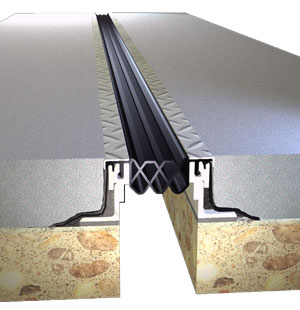General Discussion
Related: Editorials & Other Articles, Issue Forums, Alliance Forums, Region ForumsI heard on the news a few days ago, a road in WI buckled up because it was so hot.
Any civil engineers here?
Why doesn't that happen everywhere, particularly in areas that are super hot--such as Nevada and Texas?
edited for spelling
HappyMe
(20,277 posts)it may be the concrete or asphalt mix they use.
Their roads probably wouldn't make it through a WI winter unscathed.
PoliticAverse
(26,366 posts)than concrete.
jberryhill
(62,444 posts)Asphalt roads can handle a fair amount of internal stress.
Concrete roads are built with expansion joints - that thin black line between sections.

Watch this:
tanyev
(42,564 posts)Maybe even different techniques.
mmonk
(52,589 posts)justabob
(3,069 posts)Roads all over Texas had issues last year.
on edit: http://dfw.cbslocal.com/2011/07/13/north-texas-heat-causing-roadways-to-buckle/
tammywammy
(26,582 posts)I remember a lot of news reports during our hot hot hot summer last year of roads buckling.
justabob
(3,069 posts)And apparently the Superbowl ice storm in DFW made the roads here more vulnerable. I don't really know if my paths were affected because in the city the roads are pretty bad regardless, lots of dips and bulges and potholes aplenty. ![]()
I am so glad we are not on day 23 (or whatever) of 100+ temps. Last year was unbearable. It is amazing what a difference there is between 103 and 98. ![]() I am not loving the humidity though.
I am not loving the humidity though.
Gidney N Cloyd
(19,840 posts)quaker bill
(8,224 posts)It is a property that one usually does not notice because the change in length is fairly small by percent for most materials. However, a small percentage change in length becomes a pretty large distance when the length of the road is many miles. A 0.1% change in length spread over two miles (10,000+ feet) is roughly 10'. When 10' of extra road suddenly tries to fit in the same place, concrete buckles. That is why there are expansion joints, but sometimes they aren't big enough.
dixiegrrrrl
(60,010 posts)Bluzmann57
(12,336 posts)A piece of Interstate 74, which runs through this area, buckled yesterday because of the heat. What scares the hell out of me is that the I-74 bridge is a heavily travelled bridge and it is in need of replacement. But the teahadists in Congress are holding up funding for the bridge. FYI the funding is tied into the transportation bill which has to be made into law to create many many jobs.
flvegan
(64,408 posts)hunter
(38,317 posts)...except one slab crumpled under the other, making a stair-step facing traffic. We were traveling on the other side of the interstate.
About a dozen cars hit the raised slab before traffic came to a stop. These cars were totaled and were facing in all directions surrounded by mechanical debris. Fortunately nobody was killed.
The expansion joints are designed to compensate for a certain maximum temperature. Once that temperature is exceeded the road buckles.
But there's a consideration limiting the size of expansion joints too. The larger the expansion joint is, the more likely it will fail if water gets in between the joints and under the road and then freezes. Freezing water will also cause roads to buckle.
These freeze-thaw cycles can also move entire sections of road, sometimes pushing adjacent slabs closer together, making the expansion joint smaller, and lowering the temperature at which the road will buckle in the summer.
Lydia Leftcoast
(48,217 posts)It happened in Minnesota, too.
PavePusher
(15,374 posts)Come look at Valencia road between Kolb and Wilmot here in Tucson.....
It's actually painful to drive on, or to ride a motorcycle. Riding a bicycle over the asphalt buckles should be in the same class as waterboarding.